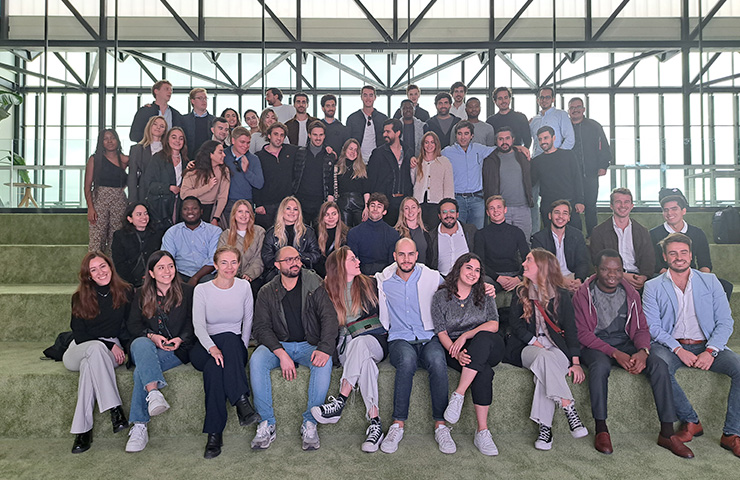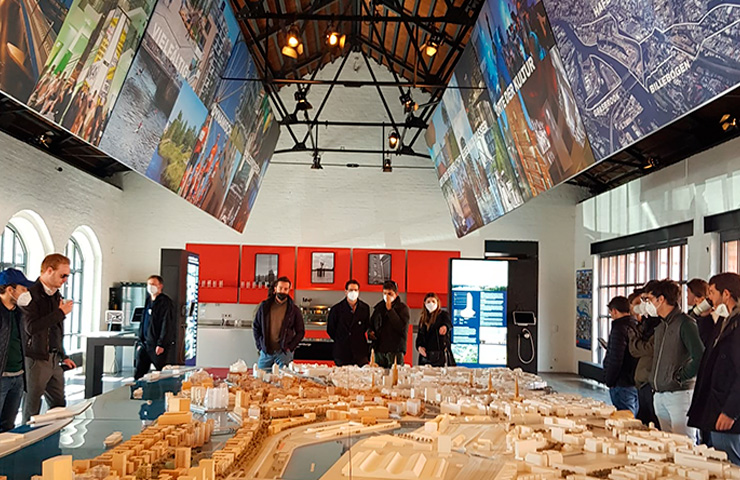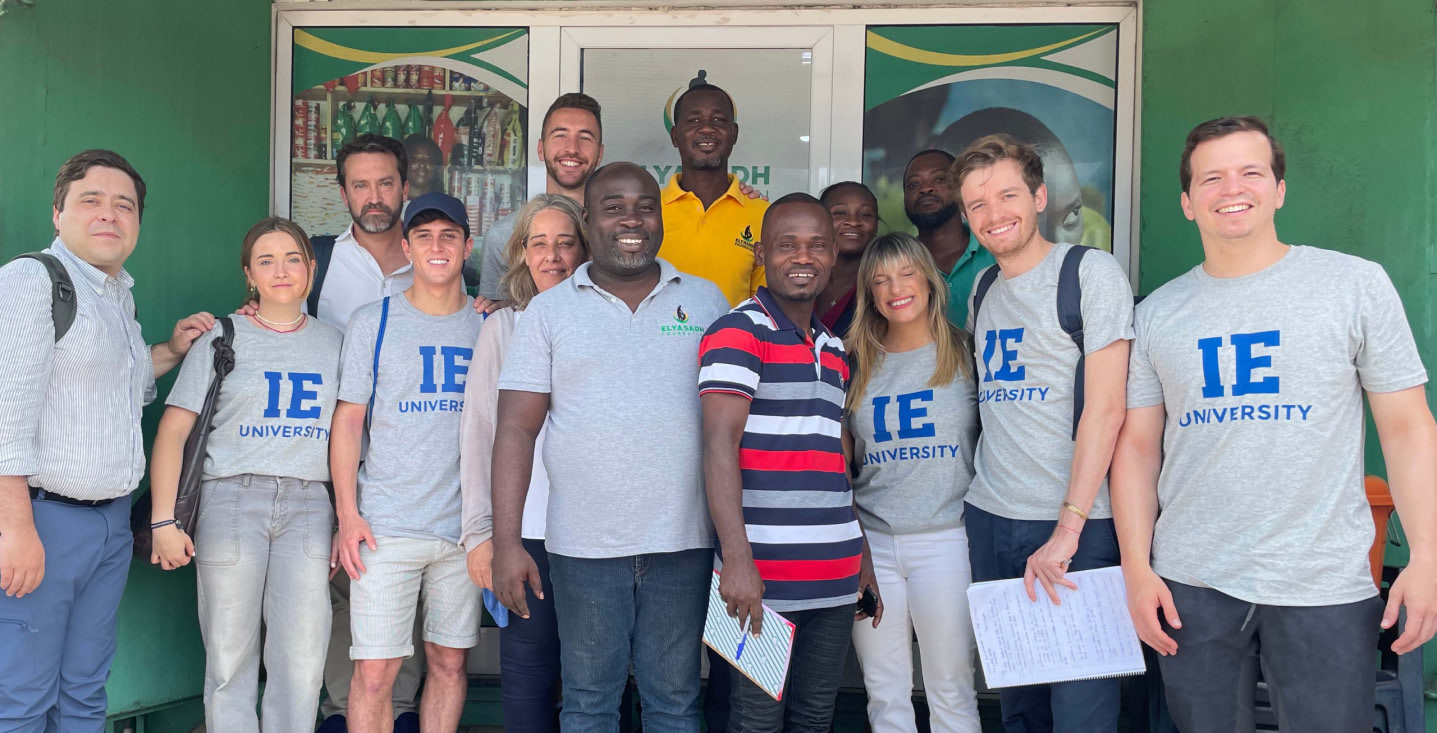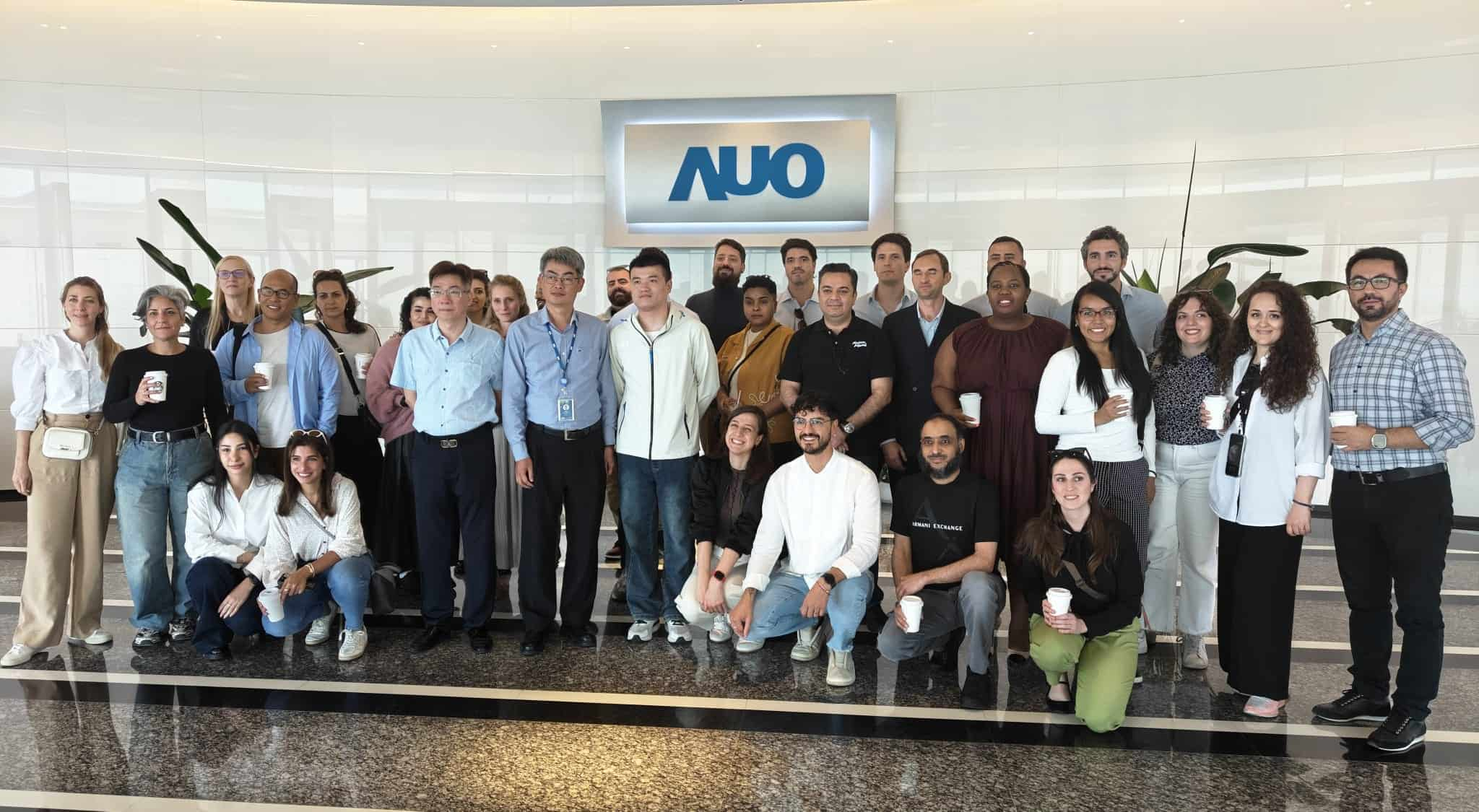24/04/2023
Every March, the world’s real estate community comes together in Cannes, France for MIPIM, a sector-leading exhibition, conference and networking event. This year, IE School of Architecture and Design’s Victor Aleñar was able to speak live in an online interview with Javier Kindelan, CEO of Valuations EMEA and professor at IE University.
While experiencing the event firsthand, Javier shared his impressions of the sentiment at the event, and his insight on real estate trends, current global challenges and the importance of sustainability in the sector.
Prestigious conferences like the MIPIM 2023 allow students and professionals from all over the world to come together and engage with the real estate sector.

Specifically, MIPIM brings together international investors, lenders and stakeholders from the real estate sector to learn about what’s happening in the market and future trends and see what outside forces are influencing the real estate sector in an intensive setting. “The whole real estate community comes together for three days concentrating on getting opportunities and deals off the ground,” he told Victor.
MIPIM is also constantly changing and adapting to current challenges: “Everyone’s taking a top-down approach. The macroeconomic challenges we have been putting a lot of focus on what’s going to happen to the real estate sector.” Rising energy costs, inflation, geopolitical concerns and high interest rates are key topics being discussed at MIPIM this year. Javier explained that there is no one-size-fits-all scenario in the real estate sector; markets across Europe are moving at different speeds. That said, there is a positive sentiment in terms of current activity and what the future could look like.
Positive signs
The prevailing macroeconomic conditions are affecting the different asset classes in real estate in different ways; residential business is proving a more resilient section, according to Javier. He went on to explain how, despite the growth of hybrid work, the office sector is also still growing, with different solutions being found across different companies. Similarly, the tourism sector is recovering post-COVID-19.
The real estate sector is facing some big challenges at the moment. But Javier explained that key stakeholders at MIPIM expect the second half of 2023 to see more activity, and for interest rates to go down in 2024, citing sessions being led by countries including Brazil and Egypt, as well as cities; Manchester, London and Madrid. Considerable effort is being put into promoting their spaces to encourage investment. At the same time, sessions are also tackling the sector trends across the industry’s different verticals: “There are talks around office space in the future, for example. It’s here to stay.”
Expectations have changed. The industry must change with them.
Speaking about ongoing cultural changes that the real estate sector must be aware of, Javier sees both challenge and opportunity. “The way that people live is very different. If you look at the generational and sociocultural changes that we’re seeing, you can see everyone is looking for greater amenities and greater experiences. Different generations are looking for greater elements of community. So these are exciting times in terms of the living sector.” Sustainability was also a key focus at MIPIM this year as a top priority for everyone.

Javier explained that “There are very few opportunities that we’re involved in where ESG is not being met. It’s a must-have.”
He also expanded on how people are now willing to pay more for sustainability and the impact this has on lenders.
Stakeholders are mindful of incorporating sustainability into their businesses and avoiding greenwashing. Sustainability is not isolated to one sector vertical; it is a key concern for the whole real estate sector.
As this year’s MIPIM has shown, real estate is a sector with a bright future. IE University’s Master in Real Estate Development is a program that explores the increasing relationship between real estate and conscientious development, providing comprehensive understanding of the development process in either full- or part-time formats.








